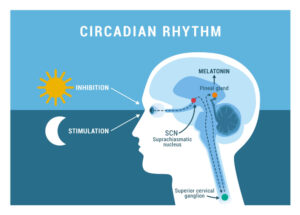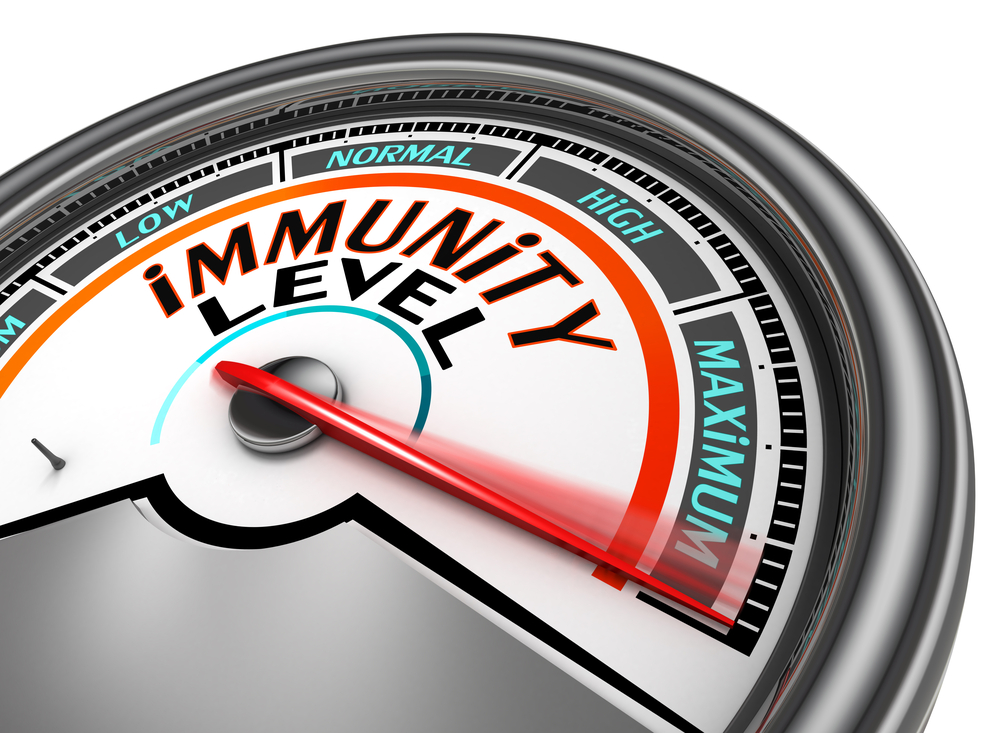Immune System
As a naturopathic doctor I believe having a healthy immune system is one of the most important factors when it comes to overall wellness.
It’s hard to improve your health and move it forward when you’re constantly run down, sick, or taking a long time to recover from the latest cold or flu.
I would say, before you can have more energy, better sleep, better skin, weight loss, better mood…all the things people want when they come to see me…
You really need to focus on having a healthy immune system.
Immune health is the foundation for living in vibrant health – or as I like to say, “HIGHER HEALTH”.
Since we are in the cold/flu season, proactive immune support should be a top priority, and I want to help you do just that with my top tips for a strong and healthy immune system.
Those of you who follow me, you know I am big believer in IV drip therapy for immune health. For this article, I want to share tips you can do at home.
I can almost guarantee there will be a few you didn’t realize were as important as they are.
The good news is you can easily add these to your life right away without making huge lifestyle changes.
Quick disclaimer. The info I am about to share is for informational purposes only. It is not a substitute for professional medical advice, diagnosis, or treatment and is not intended as a recommendation or endorsement of any specific tests, products, procedures, opinions or any other information.
Now that that is out of the way, let’s dive in!
#1

Between 70% and 97% of Canadians demonstrate vitamin D insufficiency.
Which is why I’m going to start with Vitamin D . – Having optimal Vitamin D levels are very important for maintaining a healthy immune system.
When our Vitamin D levels get too low, you can experience a decreased resistance to viruses, think cold and flu; meaning it’s easier to catch whatever is going around!
With typical viral infections, there are two phases… an inflammatory and an anti-inflammatory phase. The inflammatory phase fights and clears the infection. This inflammatory phase is a good thing.
That’s where Vitamin D comes in. Vitamin D helps to initiate the anti-inflammatory phase, where the healing begins.
If your Vitamin D is too low, it can become more difficult to move to the anti-inflammatory phase, and you can stay stuck in the inflammatory phase and symptoms persist.
Which means your colds will linger and it will take you longer to recover.
Vitamin D can also help fight inflammation…which we’re going to touch on a few times as it’s a huge factor for your immune health and overall wellness.
Anytime I run bloodwork, I will strongly recommend including Vitamin D – regardless of summer months, or even when someone is already taking it as a supplement.
Because, I’ve found many people to be unexpectedly low.
Living in the northern hemisphere, we are much less exposed to sun rays that help our bodies naturally produce Vitamin D.
When we are in the sun for those 2 glorious Canadian summer months, we are often wearing sunscreen, which does protect our skin from burns and accelerated aging, but also blocks the sun rays we need to convert to vitamin D.
When you cannot get your Vitamin D from the sun, here is how to make sure you are reaching your optimal levels.
The best way to get your vitamin D through supplemental form is in a healthy fat, which usually comes in drop or gel form.
Vitamin D is a fat-soluble nutrient, meaning it absorbs better into fat.
Drops or gel forms are emulsified, meaning they are broken down into tiny little fat molecules, making it much easier to absorb the fat molecules that contain the D.
Always ensure taking your Vitamin D with a healthy fat to aid further in the absorption – such as avocado, olive oil, fish oil, eggs, nuts, etc.. for a longer list feel free to reach out.
#2

Oxidants are everywhere – from walking down the street and breathing in car exhaust, eating certain foods, using house hold cleaning products, and even healthy activities like exercise, create oxidative stress. And guess what… viral infection causes massive oxidative stress on your body.
Too much oxidative stress can impair your immune health (and create further inflammation).
The answer is to give your body antioxidants, which you have probably heard about, but you might not have understood the role of antioxidants specific to immune health.
You want antioxidants in your system to neutralize oxidants BEFORE they can cause cellular damage and lead to inflammation.
Just follow a perfectly healthy diet and you’ll get all the Antioxidants you need, right?
Unfortunately in today’s world that is much easier said than done, so you need to consider supplementing.
My favourite antioxidant, is Glutathione – it’s arguably your body’s most powerful antioxidant which helps support healthy lungs, detoxification, liver function, and fight inflammation.
Glutathione is found naturally in your body and is actually produced by your liver and nerve cells. It is made from three amino acids: glutamine, glycine, and cysteine.
To help your natural glutathione production you need to up your antioxidant glutathione supportive foods.
- Cruciferous vegetables like broccoli, Brussel sprouts, cauliflower, kale, watercress and mustard greens.
- Allium vegetables, including garlic, shallots and onions, also boost glutathione levels.
There are also Glutathione supplements that you can take.
They come on many forms and each one has its own benefit. Whether you take an oral, suppository, nebulized form, or by IV Therapy, make sure you are getting it from a reputable source.
#3

MELATONIN IS YOUR IMMUNE Friend:
Melatonin has been known for helping people sleep as well as helping with anxiety support.
It is also key for immune health because of its powerful antioxidant benefits, particularly when fighting viral infections.
It is very good for lung health and reducing fibrosis or scarring – which is a negative consequence with significant viral infections that can affect breathing and oxygen status.
Here are 2 ways you can start increasing your melatonin levels.
Up your melatonin with light exposure first thing in the morning. Rain or shine!
You see, it’s actually your exposure to light in the morning that builds your storage of melatonin to then be released later at night.
It’s like you’re filling your gas tank in the morning so that you can drive your car later in the evening without issues.
You can also add a melatonin supplement to your nightly routines.
When choosing a melatonin supplement, I like liquid melatonin – because it absorbs right under your tongue (making a lower dose effective).
It’s very important to pay attention to dosing – everyone has their sweet spot… too much and you will feel groggy the next day, not enough and you’ll be wondering what you spent your money on!
If it is in your budget I would suggest finding out where your melatonin levels are at.
There are some advanced tests that look at melatonin levels, and one of my favorites is the DUTCH.
If it’s not in your budget, then we need to find out what dose is best for you. Depending on what we find out during the intake process, I will usually start with 1-3mg, and then build from there.
Some people respond best to a low dose, others to 5mg, and others to 10-20mg.
You can also get an extended-release melatonin, which means it slowly releases in your system so that you can “stay asleep” (or fall back to sleep easier if you are woken by external causes).
One last thing on melatonin. I want to Circle back to melatonin for sleep and anxiety.
Your general immunity can be impaired by anxiety and sleep deprivation, so it makes sense to ensure your melatonin levels are optimal and your sleep wake cycles are in rhythm.
Melatonin really helps with this.
As we get older our bodies produce less Melatonin, so it’s something to strongly consider supplementing with as you age.
#4

SUGAR AND Your Immune Health
I love my sweets and I wish there was another way to tell you this, but sugar does not help you have a healthy immune system in any way, shape, or form.
In my practice, high-sugar diets are probably the biggest driver of chronic inflammation which impacts immune health.
I’m going to share some of the why its bad for your health, and then some tips to help you move away from the cravings.
How does sugar drive inflammation:
- By causing high blood sugar leading to a proinflammatory state.
- By feeding proinflammatory gut bacteria which leads to leaky gut and decreases nutrient absorption.
- By increasing fat production in the liver and creating inflammatory metabolites.
- By raising insulin levels and decreasing the production of anti-inflammatory ketones.
- By driving weight gain and obesity leading to to more inflammation.
Remember – Sugar calories are empty calories.
When you overeat (or overdrink) them, your body tries to get more in search of missing nutrients… but it never fills the void of missing nutrient.
The excess sugar gets stored as fat… and you contribute further to the endless inflammatory loop.
It is a very vicious cycle.
Do right away/start today: To get the sugar monkey off your back, focus on healthy fats and proteins first.
Plan your meals to ensure good fats and proteins are part of every meal! This can help reduce sugar cravings.
And make your first bite of food in each meal the protein/fat option, which will slow the release of blood sugar into your blood stream.
This helps to create a more balanced insulin/blood sugar response, keeping you satiated for longer and minimizing excess sugar/glucose consumption.
#5

UP YOUR PROTEIN
This is a good follow up to sugar, because not only will more protein help curb sugar cravings, it will also help your immune health.
Protein plays an important role in powering specific immune cells called T cells, which identify and attack viral invaders in your bloodstream causing infection.
A diet low in protein leaves you open to fatigue, weakness, and a low immune response.
Getting your protein from food is better than taking supplements and powders.
If you cannot get enough through food then look for a high-quality, bio available protein powder from a reputable company.
#6

More water can mean better immune health.
So many of us walk around highly caffeinated and under hydrated.
Just as your lawn needs water to grow, your car needs gas to run, your immune system needs proper hydration to function optimally.
When you’re not properly hydrated, eliminating toxins and waste materials become a difficult task and eventually will contribute to wearing down your immune system.
Not only that, not staying hydrated diminishes energy levels and immune function over time.
If you are drinking less than 2L of water per day, it’s really important to figure out strategies to improve your hydration for improved immune health.
You can set a timer to remind you to get stand up and take a drink of water very hour. Sounds silly? Not at all. It works!
There are some people who just don’t like the taste of plain water. I would recommend adding some healthy flavors to it.
I always have chlorophyll in my water. It gives it a minty taste and has some antioxidant properties to it.
What ever you need to add to get more hydration into your body…make sure it does not have any sugar!
#7

Constant Stress Can Weaken Your Immune System.
Stress stress stress! There is no arguing, we live in stressful times.
I wish more emphasis on stress management was part of everyone’s health practice.
I’m talking about stress from work, family, and simple things like traffic, watching the news.. this is the type of stress that is constantly spiking your cortisol and stress metabolites (catecholamines).
Chronic stress eventually exhausts your cortisol release, which then drives up inflammation and will lead to a weakened immune system. *Note: cortisol is your natural anti-inflammatory hormone. When you exhaust your stores, you are less able to manage inflammation.
When you are going through stressful times… double down on anti-inflammatory support such as antioxidant foods, supplementation, make sure you are hydrated, avoid sugar, increase protein; and all the things we have covered so far.
When feeling stressed, or you knowing you’re about to enter a stressful situation, you want to shift from being in a…
Stress mode = Sympathetic fight flight mode.
To a rest mode = Parasympathetic mode.
The following simple exercise can help put you into a parasympathetic mode, calming your cortisol release, and lowering inflammatory processes.
Navy Seals are taught this to help them in stressful situations. It’s called BOX BREATHING and has been shown to lower stress and help you re-center.
It’s really simple!
Step 1: Breathe in through your nose counting to four slowly. Feel the air enter your lungs as you visualize trace one side of an imaginary box or a door frame.
Step 2: Hold your breath for 4 seconds. Try to avoid inhaling or exhaling for 4 seconds, as you visualize tracing the second side of the box or door frame.
Step 3: Slowly exhale through your mouth for 4 seconds, as you visualize tracing the 3rd side of the box or door frame.
Step 4: Hold your breath for 4 seconds as you visualize tracing the 4th side of the box or door frame.
***Repeat steps 1 to 4 until you feel your stress going down.
You can do this multiple times a day and just about anywhere. I often find myself doing this when in traffic!
#8 (bonus!)
I know, I said 7, but I cannot talk about immune health and leave out IV Drip Therapy.
Some of the benefits this IV Drip can give you:
- Supports your immune system with high doses of targeted nutrients
- Reduces inflammation which helps decrease tissue damage associated with infections
- Provides your system with antimicrobial and antiviral help to your system stay strong
There you have 7+ 1 tips and hopefully took away at least 1 that you can start using today to help improve your immune health.
There is so much more to having a strong immune system, from GI health to hormones and more, and each person has their own unique needs.
If you want to discuss how we can help you reach your best health or help you with a specific condition, you can book a free discovery call.
References:
https://pubmed.ncbi.nlm.nih.gov/20413135/
https://pubmed.ncbi.nlm.nih.gov/11115795/
https://www.higherhealthcentre.com/glutathione-iv-drip/
https://www.ncbi.nlm.nih.gov/pmc/articles/PMC3645767/
https://www.scientificamerican.com/article/does-sugar-really-suppress-the-immune-system/
https://discover.livemomentous.com/articles/how-protein-can-power-up-your-immune-system/
https://ssihi.uci.edu/tip/hydration-for-immune-system/

